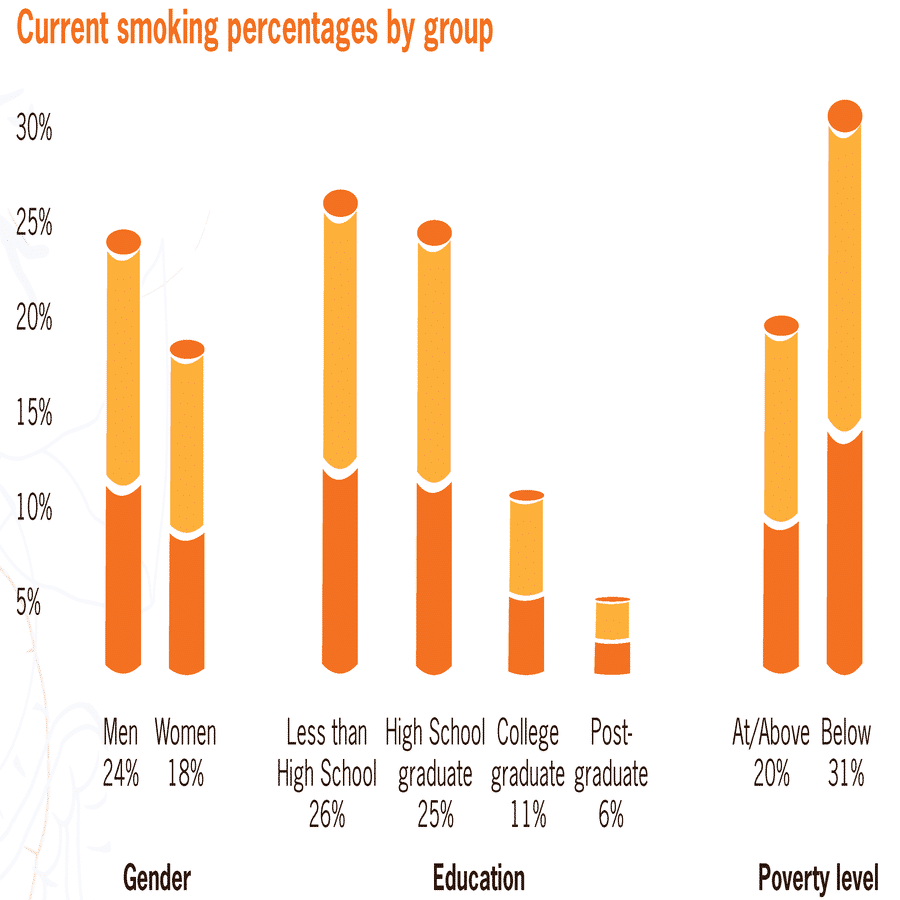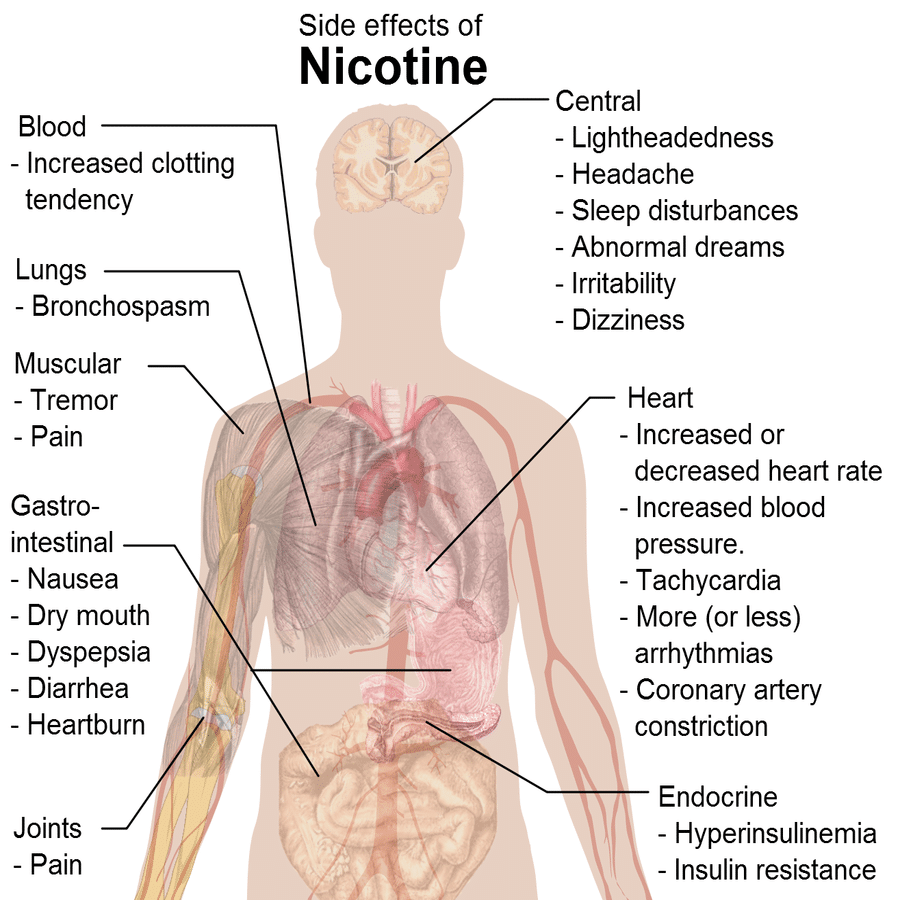What Are The Negative Long Term Effects Related To Smoking?


Smoking cigarettes is the largest preventable source for disease morbidity as well as death, and tobacco policies play an essential role in lowering the economic cost of tobacco to society. Although prevention is an important goal of tobacco control, so is cessation. Cessation without help is challenging as a result of the highly habit-forming nature of cigarettes.
Psychology and addiction research studies have discovered that cigarette smokers react with subjective reactions to stimuli linked with smoking cigarettes. A 2009 study of the International Journal of Environmental Research and Public Health investigated the association between the variety of cigarettes smokers devour each month and their reaction to signs derived from their peers along with any associations with mental distress. They researched 1,220 adults that consisted of current versus previous smokers. Peer signs and also psychological cues were the only two signals used to identify the need to have a cigarette. They found a positive correlation between quantity smoked related to the peer and psychological cues. Response to emotional signals was reduced amongst male cigarette smokers, but reaction to mental signs were higher among those that had at least a high school level education and who started smoking cigarettes as feedback to their related stress levels. These outcomes recommend that both peer signs and psychological signs boost the probability of contingent cigarette smoking, and should, consequently, be dealt with by anti-smoking programs. More particularly, special attention can be paid to aid smokers in finding healthy alternatives to using cigarettes to alleviate distress.
How Is The Brain Affected By Cigarette Smoke?

Expanding evidence from animal research indicates brain-damaging effects due to direct exposure to nicotine. In a 2006 study in the European Journal of Neuroscience, the differences between twenty-two smokers and twenty-three non-smokers were measured using magnetic resonance imaging. Considerably smaller grey matter quantities, as well as lower grey tissue thickness, were noted in the frontal regions, the temporal lobe and also the occipital wattle in cigarette smokers compared to their counterparts. Measurement of lifetime exposure to tobacco smoke was inversely correlated with the volume of temporal and frontal wattles. The data suggests deficiencies of numerous cortical and subcortical regions in cigarette smokers to non-smokers. The findings also point to the regularly stated cognitive disorders in persistent cigarette customers.
In the November 2014 issue of Frontiers and Aging Science, researchers investigated the longitudinal and cross-sectional results of smoking on mind atrophy with healthy senior individuals’ age 65 to 80. An MRI was utilized for determining whole brain, grey matter, white matter, and hippocampus biomes at research study access time. Results of smoking condition (never, former, or current cigarette smoker) at research study access and also of lifetime tobacco usage on the brain phenotypes were studied. At baseline, male current smokers had much lower gray matter while women smokers had less white matter. Also, women smokers exhibited reduced baseline hippocampus biomes, the decrease being correlated with lifetime tobacco intake. Longitudinal evaluations demonstrated that present smokers, whether men or women, had bigger annualized rate of hippocampus biomes atrophy, as contrasted to former cigarette smokers, independent of their lifetime consumption of tobacco. These results show that tobacco smoking is a significant aspect of brain aging, especially in the hippocampus biomes annualized atrophy after the age of 65.
The efficiency of pharmacotherapy for smoking cessation is well documented. Nevertheless, due to relapses and side effects, hypnotherapy is acquiring greater attention as a different treatment of choice. The aim of this one-center randomized research study with the Complementary Therapies and Medicine in 2014 was to contrast the efficacy of hypnotherapy alone, as well as hypnotherapy with nicotine replacement therapy, to traditional NRT in patients hospitalized with a lung or cardiac health problem.
They examined self-reported as well as biochemically validated 7-day smoking abstinence rates at 12 and 26 weeks post-hospitalization. Clients were randomized into one of the three counseling-based therapy teams: NRT for 30 days, a 90-min hypnotherapy session, and also NRT with hypnotherapy. Treatment groups were compared with a group of thirty-five individuals that refused intervention.
Hypnotherapy recipients were much more likely than NRT clients to be nonsmokers at twelve weeks and twenty-six weeks after hospitalization. Their conclusion was that hypnotherapy is a lot more effective compared to NRT in enhancing smoking cigarettes sobriety in people hospitalized for a smoking-related ailment.
Is using hypnotherapy as a treatment for smoking the same for both men and women? As noted by Green, Len, and Montgomery (2008), women often are much more afraid of weight gain and this influences their decision whether or not to stop smoking. Appropriately, females ought to be encouraged to seek advice from with their medical professionals regarding launching a suitable diet plan and exercise program that will enhance the self-esteem as well as physical fitness. In addition, the study highlighted that women smokers are twice as likely to experience anxiety during the withdrawal process, so it is vital to consist of treatments for taking care of depressive reactions while incorporating hypnosis based smoking cessation treatments.
Tobacco smoke consists of countless toxic substances. Several constituents have documented toxicity to the mind, cardiovascular, as well as lung systems. One could think, because of this, that a smoking cessation program including stop smoking hypnosis strategies offered in a self-help layout is likely to be of considerable aid to those that wish to quit smoking.


